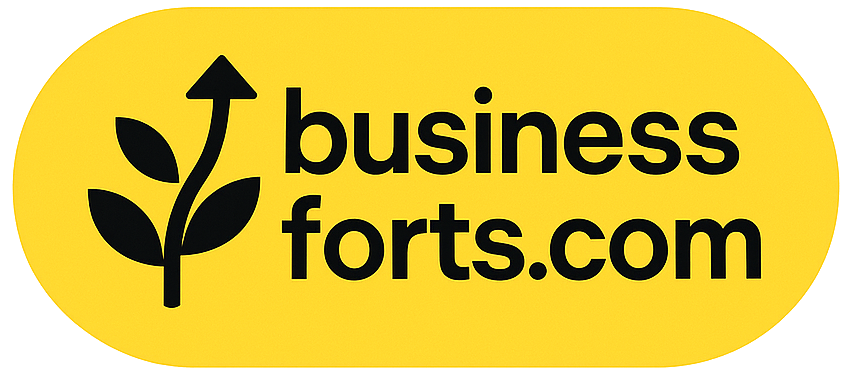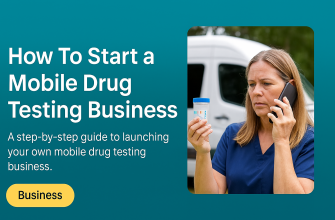Starting a cleaning business can be an easy and rewarding venture for aspiring entrepreneurs. In fact, cleaning services are in high demand, and with minimal overhead and basic equipment, you can jump in and seize the opportunity. You don’t need special certifications or huge capital – just a solid work ethic and a smart plan. If you’ve been wondering how to start a cleaning company business or how easy is it to start a cleaning business, this friendly guide will walk you through how to start a cleaning business step by step. Whether you aim to open a cleaning business for homes or launch a commercial cleaning service, these steps will help you get a cleaning business started from scratch with confidence.
- Step 1: Research and Plan Your Cleaning Business
- Step 2: Write a Winning Business Plan
- Step 3: Handle Business Registration and Legal Requirements
- Step 4: Stock Up on Essential Supplies and Equipment
- Step 5: Market Your Business and Build Your Brand
- Step 6: Deliver Excellent Service and Grow Your Business
Step 1: Research and Plan Your Cleaning Business
What Are the Steps to Start a Cleaning Business from Scratch? Every successful business begins with research and planning. Start by getting to know your local market – understand the demand for cleaning services in your area and who your competitors are. Ask yourself what clients in your community need: Are busy homeowners looking for a reliable maid service? Do local offices need nightly cleaning? This will help you define your target market. For example, if you plan on how to start a home cleaning service business, your target might be working families, seniors, or rental property owners. If you focus on commercial cleaning, your target could be office managers, retailers, or property managers in your city.
What Type of Cleaning Business Should I Start? Decide on your niche early. The main types are:
-
Residential cleaning (home cleaning): Working in houses or apartments, often as a solo cleaner or small team. Residential jobs are usually smaller in scale but more frequent (e.g. weekly house cleanings). This is a great route if you want to know how to start a small cleaning business by yourself.
-
Commercial cleaning: Serving businesses such as offices, stores, or schools. Commercial jobs often happen after-hours and may require a team and more equipment. You might only need a few steady cleaning contractsto stay profitable in commercial cleaning.
-
Specialty cleaning: Focusing on a specific service like carpet cleaning, window washing, upholstery cleaning, or post-construction cleanup. Specializing can set you apart and allow higher rates, but may require extra training or gear.
Research which niche has a gap in your area and matches your skills. Starting from scratch means you’ll build your business from the ground up – creating your own brand and client base. (An alternative is buying into a franchise, which gives support but less freedom.) For most new entrepreneurs, starting independently is very doable. How to get a cleaning business started? Begin by writing down your business idea, who you will serve, and what makes you different. This foundational planning will guide everything else.
Step 2: Write a Winning Business Plan
How Do I Start a Cleaning Business from Scratch? One key step is to create a business plan. A business plan is like your roadmap – it forces you to think through the details of how to open up a cleaning business and make it successful. In it, you’ll outline your goals and the steps to reach them. How do I create a business plan for my cleaning service? Start by including these essential sections:
-
Executive Summary: A brief overview of your business idea and why it will succeed.
-
Company Description: Your business name, location, and the type of cleaning services you’ll offer (residential, commercial, or specialty).
-
Market Analysis (Target Market): Research on your industry, target customers, and competitors. Define your ideal clients (e.g. homeowners, offices) and why they need your service.
-
Services Offered: Detail the cleaning services you will provide (e.g. basic home cleaning, deep cleaning, carpet shampooing).
-
Marketing and Sales Plan: How you will attract and retain customers (online marketing, referrals, etc.).
-
Business Structure and Management: Will you operate as sole proprietor, LLC, etc. (see Step 3), and who will run the business (just you or a team)?
-
Financial Plan and Projections: Include your startup costs, pricing strategy, revenue goals, and projected profits. Estimate what you’ll earn and spend in the first year. For example, list expected expenses (supplies, insurance, any staff wages) and how many clients or jobs you need for profitability.
What Financial Projections Should I Make for My Cleaning Business? Be realistic and thorough. Calculate one-time startup costs (e.g. vacuum, mop, business registration fees). Then project monthly expenses and income. Consider how many houses or offices you can clean in a week and the rate per job. This will give you a projected monthly revenue. Also project your break-even point (when income covers expenses). Financial projections help prove your business is viable. Even if you’re not seeking a loan, they serve as goals to hit. Tip: include a small buffer for unexpected costs and plan for growth (e.g. hiring a helper by month 6 if demand rises).
Having a written plan will make it much easier to start a cleaning business step by step because you’ve mapped out the journey. It also impresses potential investors or lenders by showing you’ve done your homework. As one guide notes, “Having a well-planned strategy can help identify potential issues before they occur”, making your path forward less risky and more straightforward.
Step 3: Handle Business Registration and Legal Requirements
Now that you have a plan, it’s time to make your business official. What is the best business structure for a cleaning company? This depends on your situation, but many small cleaning businesses choose a structure that balances simplicity and liability protection. Common options include:
-
Sole Proprietorship: Easiest to set up (often just start using your name), but you are personally liable for any business debts or legal issues. This is fine if you’re starting very small, but keep in mind that if a client ever sues, your personal assets are at risk.
-
Partnership: If you have a co-founder, a partnership is essentially like a multi-owner sole proprietorship – still fairly simple, but each partner is personally liable.
-
Limited Liability Company (LLC): A popular choice for small businesses. An LLC separates your personal assets from the company’s liabilities, giving you protection if something goes wrong. It’s generally affordable to register and has less paperwork than a corporation. For many cleaning services, an LLC is the “sweet spot” structure.
-
Corporation: Provides the strongest liability protection and can have tax benefits, but it’s more complex and costly to maintain. A corporation is likely overkill unless you plan to grow a large operation or seek investors.
What are the steps to register your cleaning business? The exact process varies by location, but typically you need to register your business name with your state or local government and choose your business structure. If you pick a unique business name (not just “John Doe Cleaning”), you may file a DBA (“Doing Business As”) or business name registration so that name is legally yours. Apply for an Employer Identification Number (EIN) from the IRS (if in the U.S.) for tax purposes, especially if you’ll have employees. Many cities/counties also require a general business license– a basic permit to operate a business in that jurisdiction. Check your local government’s website for a “new business” checklist.
Do I need any special licenses for my cleaning business? In general, standard house or office cleaning doesn’t require a specific industry license – you typically just need the general business license mentioned above. However, if you offer specialty services (like carpet cleaning, mold remediation, or using certain chemicals), look into any certifications or permits required in your area. For example, handling industrial-strength cleaning agents or biohazards might need special training or certification. Always comply with local regulations on cleaning chemicals and waste disposal. It’s wise to consult your city’s small business office or website to ensure you meet all requirements (permits, zoning if working from home, etc.).
Don’t forget about insurance and bonding as part of legal prep. While not a “license,” business insurance is essential to protect you and satisfy clients. At minimum, get general liability insurance to cover accidents or damage (for instance, if you accidentally break a client’s window or someone slips on a freshly mopped floor). If you hire staff, you may also need workers’ compensation insurance (often required by law once you have employees). Being bonded(securing a janitorial bond) can help you win commercial clients, as it guarantees reimbursement to the client if an employee steals or damages property. Many clients prefer or even require working with licensed, bonded, and insuredcleaners for peace of mind.
How can I ensure compliance in the cleaning industry? Staying compliant means following all laws and best practices as you operate. Here are a few tips:
-
Follow labor laws: If you have employees, obey minimum wage and overtime rules, and provide proper training, breaks, and a safe work environment (OSHA regulations for handling cleaning chemicals, for example).
-
Tax compliance: Keep up with taxes (sales tax if applicable to services in your state, income taxes, payroll taxes for employees). Use a bookkeeping system or accountant to help.
-
Safety and environmental rules: Use chemicals according to their instructions, store and dispose of them properly, and provide gloves or masks if needed. For instance, have Material Safety Data Sheets (MSDS) on hand for any hazardous cleaning products.
-
Client contracts: Use clear contracts or agreements with clients outlining the scope of work, frequency, and payment terms. This protects both you and the client from misunderstandings.
By taking care of these legal and administrative steps, you’ll open up your cleaning business on a strong, legitimate footing. It might not be the most exciting part of starting a cleaning business, but it is crucial. After this, you can focus on the fun part – cleaning and making money!
Step 4: Stock Up on Essential Supplies and Equipment
What cleaning supplies and equipment do I need? One great thing about a cleaning venture is that the initial supply list is straightforward. You can start with a relatively small kit and expand as needed. Basic cleaning supplies typically include things like:
-
Cleaning solutions: All-purpose cleaner, glass cleaner, bathroom disinfectant, floor cleaner, etc. (You can buy commercial concentrates to save money.)
-
Tools: Mop and bucket, broom and dustpan, scrub brushes, microfiber cloths, sponges, duster, and a sturdy vacuum cleaner (preferably one that can handle both carpet and hard floors).
-
Consumables: Trash bags, paper towels or cleaning rags, spray bottles, cleaning gloves (disposable latex and reusable rubber gloves), and maybe a caddy or tote to carry items.
-
Protective gear: It’s wise to have items like gloves, maybe an apron, and wet floor signs for safety when mopping. Basic personal protective equipment such as gloves, non-slip shoes, and even goggles for heavy jobs will keep you and your team safe.
This basic kit will cover most home cleaning jobs and small offices. According to experts, “cleaning supplies typically include items such as gloves, trash bags, cloths, cleaning liquids, buckets, and mops”. If you’re doing residential cleaning, the homeowner might have a vacuum or broom, but you should always bring your own suppliesto look professional and prepared. In fact, providing supplies helps you look organized, work faster with products you know, and even charge more for the convenience.
What are the essential cleaning supplies for a commercial cleaning business? For larger commercial jobs, you’ll eventually need some heavier-duty equipment. For example, offices or big retail spaces might require:
-
Extended tools: Long-handled dusters, larger push brooms for wide areas and floor squeegees.
-
Floor machines: A floor scrubber or buffer for large floor areas, and a polisher if you will maintain waxed floors. These can significantly speed up cleaning in big spaces.
-
Carpet cleaner or extractor: Useful for deep cleaning carpets in offices or hotels.
-
Pressure washer: If you offer exterior cleaning (entrances, sidewalks), a pressure washer is invaluable.
-
Ladders and extension poles: For high dusting or window cleaning; along with squeegees and T-bars for large window surfaces.
-
Commercial vacuum: A more powerful vacuum or even a backpack vacuum for efficiency in large areas.
Don’t feel you must buy everything at once. Start with the basics needed for your first jobs. You can rent or borrow specialized equipment for occasional tasks until you can invest in your own. As you define how to choose the right cleaning equipment for your services, consider the specific services you offer. For instance, if you decide to specialize in carpet cleaning, then a professional-grade carpet extractor is a must. If not, you might skip that expense initially. Focus on quality over quantity – a durable vacuum and mop can be better investments than a bunch of gadgets you rarely use.
Where can I get affordable cleaning supplies? To keep costs low when you open a cleaning business, buy smart:
-
Wholesale and bulk: Purchase supplies in bulk from wholesale clubs or janitorial supply companies for better pricing.
-
Local suppliers: Find a janitorial supply store in your area; they often have professional products at good rates and can advise you on the best products.
-
Online marketplaces: Websites like Amazon or specialized cleaning suppliers offer deals, especially if you subscribe and save or buy value packs.
-
Use what you have: In the very beginning, you might use your personal vacuum or towels to save money, then reinvest profits into dedicated business equipment.
-
Second-hand for big equipment: You can find lightly used commercial vacuums or floor buffers for sale from other businesses or online classifieds, which can save a lot on costliest items.
Remember, as your business grows, reinvest some of your earnings into upgrading equipment and maintaining a good stock of supplies. High-quality tools can make your job easier and your results better, which keeps customers happy.
Step 5: Market Your Business and Build Your Brand
You’ve set up the basics – now you need customers! How to market your cleaning business effectively? The key is to get the word out consistently, both online and offline. Marketing doesn’t have to be expensive; it just requires some creativity and effort. Here are powerful marketing strategies that work best for a cleaning company:
-
Create a brand identity: Come up with a memorable business name and logo. A good name might hint at cleaning (for example, “Sparkling Spaces” or “Maid 4 U Cleaning”). Design a simple logo or hire someone inexpensively. Consistent colors and a catchy tagline can also help. This branding will go on your website, business cards, uniforms, etc. A recognizable logo and color scheme sets you apart and makes you more memorable. Don’t overthink it – even a clean, professional look with your business name in a neat font can build trust.
-
Build an online presence: In today’s digital age, you need to be visible online. At minimum, set up a basic website or a Facebook business page with your contact info, services, and some client testimonials if you have them. Many people search online to find cleaners, so being listed will help them discover you. There are easy, low-cost website builders (Wix, Squarespace, etc.) that can get you online quickly. Also, claim your Google My Business profile (so your cleaning service shows up on Google Maps and local searches). Encourage happy clients to leave reviews online – positive reviews boost your credibility.
-
Use social media: Create a presence on platforms like Facebook, Instagram, or even Nextdoor (a neighborhood app) – wherever your target customers hang out. Post cleaning tips, before-and-after photos, and promotions. Social media is great for engaging with the community. You can also join local Facebook groups or community boards to gently advertise (check their rules first). Facebook and Instagram are especially useful for a visual business like cleaning, and you can even run small targeted ads to people in your area interested in home services.
-
Local advertising: Traditional marketing still works for a local cleaning business. Print some flyers or door hangers and distribute them in neighborhoods you want to serve (always respect local solicitation laws – don’t put flyers in mailboxes, but you can hang them on doors). A neat, friendly flyer listing your services and a special “New Customer Discount” can grab attention. Consider offering a referral discount (e.g. “Refer a friend and you both get 20% off one cleaning”). Also, turn your vehicle into a moving billboard– magnetic signs or decals with your cleaning business name and phone number are relatively cheap and can attract clients when you drive around.
-
Network in your community: Often, word-of-mouth is the most powerful marketing for cleaning services. Let friends, family, and acquaintances know about your new business – they might hire you or refer you. Attend local business mixers or join the Chamber of Commerce to meet other small business owners who might need cleaning services or can recommend you. Always have your business cards on hand to give out. What role do business cards play? They are a simple yet effective marketing tool – a tangible reminder of your service. Leave your business cards at local businesses (some coffee shops or hardware stores have bulletin boards for local services). Hand them out when you introduce yourself to property managers or realtors. A professional-looking card with your logo, name, contact, and a short tagline (“Reliable Commercial & Residential Cleaning”) can make a strong impression.
-
Leverage referrals and reviews: Encourage satisfied customers to spread the word. You might politely ask for testimonials you can put on your website. Consider a referral incentive program (e.g. a client gets a free add-on service if they refer a new customer). People trust recommendations from others, so focus on delivering great service that people want to talk about.
The best marketing strategies for a cleaning company ultimately combine online visibility, local networking, and consistent branding. Over time, your reputation will grow and marketing gets easier – you’ll start getting calls from people who heard about your excellent work. Stay motivational and remember why you started; your passion and professionalism will shine through in your marketing.
Step 6: Deliver Excellent Service and Grow Your Business
Getting your first customers is a huge milestone. Now, how do you keep them happy and run your operation smoothly? Here are some tips for running a successful cleaning business day-to-day:
-
Provide top-notch customer service: Treat your clients with respect, listen to their needs, and be responsive. Little things like showing up on time, being friendly, and doing that little extra touch (like arranging pillows neatly or leaving a thank-you note) can set you apart. If a customer has a concern or complaint, address it immediately and graciously – offer to make it right. Happy customers become repeat customers and will refer others. Building a good reputation will earn more referrals and repeat business. As one cleaning business owner notes, being transparent, honest, and attentive to customer needs goes a long way in maintaining a strong reputation.
-
Manage your cleaning staff effectively: As you grow, you may hire employees or subcontractors. How do I manage my cleaning staff? Start by hiring carefully – look for trustworthy, detail-oriented people since they will represent your company. Train your cleaners in your methods and standards; even basic tasks have a “right way” in your business. Provide them with checklists for each job so they know exactly what to do (for example, a list of tasks for a standard one-bedroom apartment cleaning). This helps ensure consistency and quality control. Communicate clearly about schedules, expectations, and client preferences. It’s a good idea to do occasional spot-checks or walk-throughs of their work, especially early on, to ensure your quality standards are met. Also, treat your team well – pay on time, offer praise for jobs well done, and create a positive work environment. Motivated employees are more reliable and provide better service.
-
Implement quality control practices: How can I ensure quality control in my cleaning services? Develop a system to maintain high standards. For example, use a cleaning checklist for each job and have either you or a supervisor inspect the work before leaving the site. Some businesses do follow-up calls or surveys with clients to get feedback. If a customer points out a missed spot, address it immediately and improve your process to prevent repeats. Regularly restock your supplies so cleaners aren’t using dirty rags or worn-out vacuums that could reduce quality. You might also schedule periodic deep-clean training sessions for your staff to refresh on best techniques. Quality control is about consistency – delivering the same great results every time. This builds trust and a strong brand.
-
Stay organized and efficient: Use tools to streamline operations. Scheduling software or even a Google Calendar can help you track client appointments. Keep detailed records of client preferences (for example, note if a homeowner has a delicate surface that needs a special cleaner, or an office that prefers you come after 6 PM). These details impress customers because they know you remember their specific requests. Manage your finances diligently – send invoices promptly (if not paid at time of service) and track expenses. Being organized behind the scenes will reduce stress and let you focus on growth.
-
Keep learning and adapting: The cleaning industry can evolve – new cleaning products come out, or new opportunities (like disinfecting services became big during pandemics). Stay up-to-date with cleaning techniques and small business tips. Maybe join a cleaning industry association or online forum where owners share advice. This can provide ongoing motivation and ideas to improve your business.
Running a cleaning business, whether it’s a small home cleaning service or a growing commercial operation, takes hard work. However, it’s also incredibly rewarding to see satisfied customers and know that you built something from scratch. Remember, you don’t really need any special skills to start a cleaning business – success comes from reliable service, trustworthiness, and continuous improvement. By following this step-by-step guide, you’ve addressed the big questions like how to open a cleaning business, how to market it, and how to ensure quality. Now, the only thing left is to take action.
Motivational Final Note: Every booming cleaning company started with just an idea and one brave person willing to get that cleaning business started. Today, that can be you. With determination and the steps above, how to start a cleaning business becomes less of a mystery and more of a checklist you can tackle one by one. So grab your mop, map out your plan, and open those doors (or van!) for business. Soon you’ll be turning dusty, dirty spaces into sparkling clean environments – and turning your entrepreneurial dreams into reality. Good luck, and happy cleaning!








